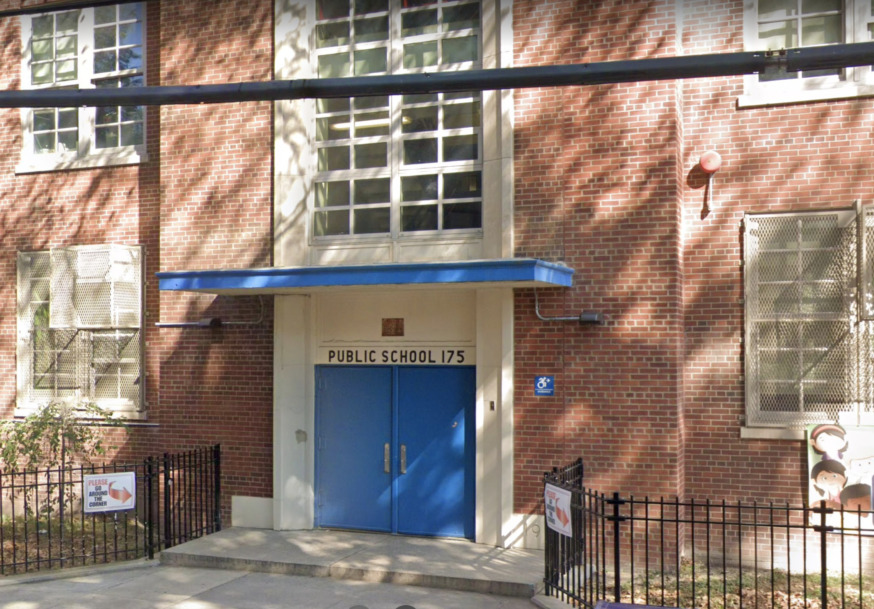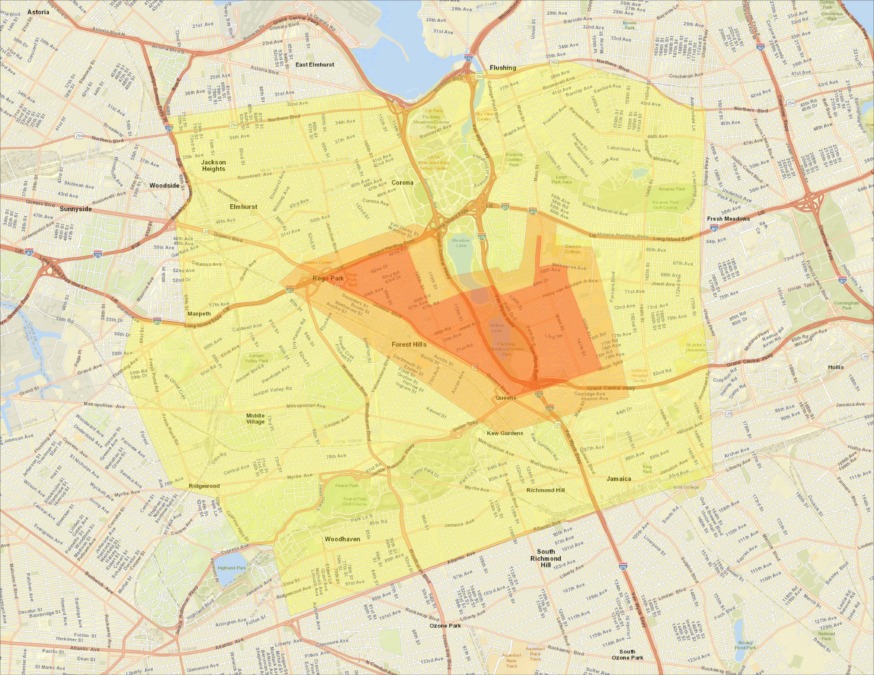
P.S. 175 the Lynn Gross Discovery School in Rego Park was one of 33 additional schools citywide to close Thursday (Google Maps)
Oct. 8, 2020 By Allie Griffin
An additional 33 New York City public schools in parts of Queens and Brooklyn were shut down Thursday for at least two weeks in an eleventh hour move by the city and state.
The schools are located within COVID-19 hotpots and were ordered to close by Governor Andrew Cuomo after he shuttered more than 90 schools earlier in the week.
The first batch of schools were closed Tuesday based on ZIP codes and coronavirus positivity data, while the new 33 schools closed today are tied to COVID-19 case data on a more granular level.
Conflicting messaging and last minute announcements from Gov. Cuomo and Mayor Bill de Blasio regarding the closures has left parents and teachers scrambling to make sense of the news.
The city didn’t announce which schools would be closing today until last night, leaving affected parents little time to find a caretaker for their children or plan ahead.
The 33 newly shuttered schools are a result of Cuomo’s new coronavirus cluster maps. The maps draw boundaries based on viral clusters— independent of any ZIP code boundaries– and fall into zones.
The 33 schools had not fallen into the ZIP codes included in the first round of shutdowns. However, they fell into either state-mandated red or orange zones where schools must close.

Central Queens cluster and zones (Governor Andrew Cuomo)
The new state-mandated zones also meant more than a dozen schools that had been closed on Tuesday are no longer in the shutdown zones, but instead fall within a yellow zone — which are not subject to school closures under the state plan.
De Blasio said today that those schools will remain closed for two weeks regardless of the state’s zones.
All other schools within a yellow zone — the furthest from the cluster — may remain open, but must implement weekly COVID-19 testing for students and educators.
Altogether, 124 schools across Queens and Brooklyn have closed due to the uptick in COVID-19 cases within their neighborhoods.
The closures also affect private and religious schools within red and orange zones.
The Diocese of Brooklyn, which represents both Catholic schools in Brooklyn and Queens, criticized Cuomo’s decision to shutter the Catholic academies and parish schools in the cluster neighborhoods.
“This decision by the Governor clearly fails to take into account the positive progress our Diocesan school system has made so far this school year,” said Dr. Tom Chadzutko, Superintendent of Brooklyn and Queens Catholic schools. “It is unconscionable to think that after the many sacrifices our staff, students, and parents have made, and in spite of our almost non-existent infection rate, the Governor has decided to force our … schools to close.”
Parents at one Catholic school in Forest Hills, Our Lady Queen of Martyrs Catholic Academy, planned a protest against the school closures today. The school is within an orange zone and closed today under the governor’s order.
Each closed public or private school must stay shut for two weeks, at which point the state and city will access the testing data and reevaluate the closures. It’s likely that some schools will remain closed for longer.
The list of Queens public schools closed for at least two weeks is below.

